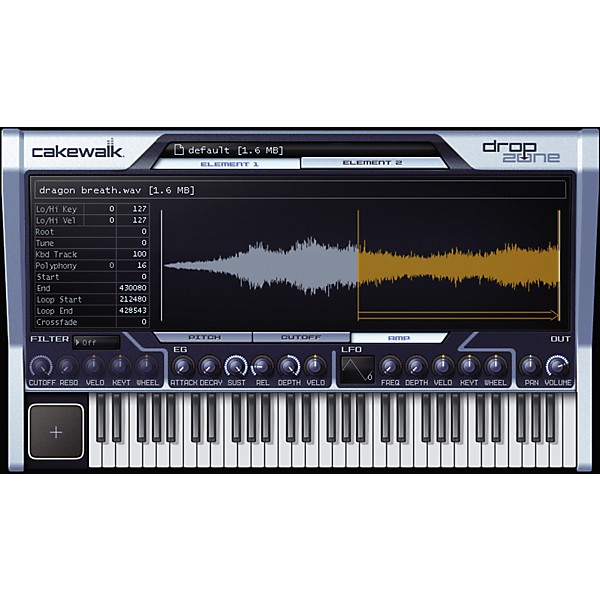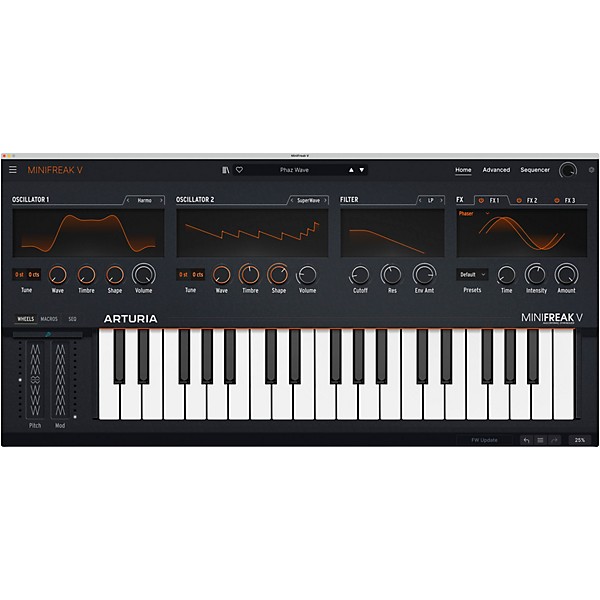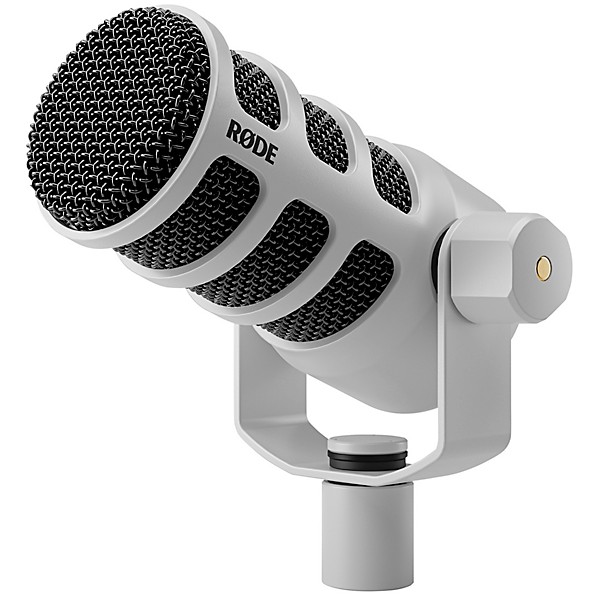Battle of Budget DJ Controllers: Pioneer DJ DDJ-400 vs. Numark Mixtrack Pro FX for Aspiring Bedroom DJs

Introduction
In today’s dynamic world of music performance, many aspiring bedroom DJs face the challenge of selecting equipment that not only fits their limited budgets but also delivers reliable functionality and room to grow. The transition from mixing tracks at home to performing live in front of an audience can be intimidating, and it is crucial to have gear that inspires confidence, creativity, and versatility. Among the myriad of options available, the Pioneer DJ DDJ-400 and the Numark Mixtrack Pro FX have emerged as frontrunners in the budget category. Both controllers offer an impressive array of features that mimic professional setups, while still being simple enough for beginners.
This article provides an in-depth exploration of each controller’s characteristics, highlighting how their innovative designs, software integrations, and performance capabilities meet the evolving needs of new DJs. We dive into everything from detailed feature sets and user interface design to practical comparisons against other popular controllers. Whether you’re setting up a home studio for the first time or you’re a seasoned hobbyist transitioning to a more dedicated setup, our detailed review will equip you with the insights required to choose the right piece of equipment that complements your musical journey. So, let’s embark on a comprehensive discussion that not only compares hardware specifics but also embraces the personal growth that comes with mastering your craft.

Key Features & Benefits
The world of DJ controllers is vast, with each model promising unique advantages. The Pioneer DJ DDJ-400 and Numark Mixtrack Pro FX have been meticulously designed to meet the practical needs of beginners, while also providing features that seasoned hobbyists appreciate. In this section, we break down each controller’s strengths in a structured way. We examine not only their hardware design and software compatibility but also how each detail supports your creative process in a home studio setting. Read on to discover the key elements that can transform your bedroom into a flourishing performance space.
Pioneer DJ DDJ-400: Precision for Bedroom DJs
The Pioneer DJ DDJ-400 is renowned for bringing the look and feel of professional Pioneer setups into a compact, beginner-friendly design. Its layout is purposefully intuitive, with all essential controls organized in a manner that mirrors the larger, club-ready versions. This controller makes it easier to learn beatmatching, looping, and cueing, thanks to its well-designed interface and responsive faders. The DDJ-400 bridges the gap between amateur experimentation and professional-level mixing, ensuring that as your skills grow, your controller remains a trusty companion. This model has been a favorite among enthusiasts who crave a genuine DJ experience without the overwhelming complexity often seen in higher-end setups.
- Comprehensive digital DJ controls including performance pads and responsive faders.
- A familiar layout that emulates professional Pioneer systems.
- Integrated effect controls for creating creative transitions and smooth mixes.
- Full compatibility with rekordbox DJ for a streamlined workflow.
- Lightweight design that fits comfortably on any home studio desk.
Usage tip: Practice regularly using the rekordbox software to internalize beat timing and effects control, which will build your confidence during live performances.

Numark Mixtrack Pro FX: Feature-Rich and Budget-Savvy
The Numark Mixtrack Pro FX distinguishes itself as a versatile controller tailored for creative mixing. With its innovative jogwheels designed for fluid beat matching and the inclusion of eight multi-functional performance pads, this unit is a strong competitor in the budget market. It offers an excellent balance of traditional DJ functionality with modern enhancements like built-in effects and sample triggering, which empower beginners to explore advanced techniques without feeling overwhelmed. The layout is both inviting and efficient, making it simple to dive into creative performance while mounting a steady progression as your passion for DJing deepens.
- High-performance jogwheels ideal for smooth beat matching and scratching.
- Eight responsive performance pads for triggering loops, cues, and samples.
- Built-in creative effects that enhance mixing without extra hardware.
- Bundled with Serato DJ Lite, which simplifies initial setup and experimentation.
- Ergonomic design that ensures ease of use during extended practice sessions.
Usage tip: Experiment with the built-in effects to create unique sound layers during your mixes, and gradually customize your set to match your evolving musical style.
Integration & Software Experience: Seamless Digital Workflows
Beyond hardware, the integration with DJ software is a critical determinant of a controller’s overall performance. Both the DDJ-400 and Mixtrack Pro FX are designed to work harmoniously with popular DJ applications, yet each platform brings its unique strengths to the table. The Pioneer DDJ-400’s deep integration with rekordbox DJ is particularly beneficial as it replicates the professional settings found in club environments, providing users with a smooth transition from home practice to live performance. On the other hand, the Numark Mixtrack Pro FX comes with a robust package that includes Serato DJ Lite, a software known for its straightforward interface and powerful features suited to beginners.
- Direct plug-and-play compatibility with industry standard DJ software.
- Streamlined workflows that reduce setup time and improve performance fluency.
- Efficient mapping of controllers to software functions for advanced control.
- Regular firmware updates that maintain software-hardware synchronization.
- Access to extensive online tutorials and community support for both platforms.
Usage tip: Dedicate some time to exploring online forums and tutorial videos to fully leverage the software capabilities available with your controller for an enriched creative process.
Build Quality & Portability: Durability Meets Compact Design
A DJ controller is not just a tool for mixing—it represents a commitment to your craft, often accompanying you on journeys from bedroom setups to live gigs. Both the Pioneer DDJ-400 and Numark Mixtrack Pro FX embody robust construction and portability while maintaining a lightweight profile that favors mobility. The DDJ-400 is engineered with a sturdy chassis that can withstand the rigors of long practice sessions and occasional transport, while retaining a sleek design that does not compromise on performance. Similarly, the Mixtrack Pro FX is built with quality materials that provide durability, making it an excellent choice for those who see their DJ journey taking them to different venues over time.
- High-quality construction using durable materials to ensure long life.
- Slim and compact form factor designed for easy transportation.
- Secure control placements that minimize accidental mis-presses during transport.
- Efficient heat dissipation mechanisms for prolonged use during long sessions.
- Ergonomic design that caters both to at-home use and live performances.
Usage tip: When moving your controller from one location to another, always use a padded carrying case to protect its sensitive components and maintain its pristine condition.
Comparison vs. Alternatives — The Innovator's Edge
To make an informed decision, it is beneficial to not only evaluate the Pioneer DDJ-400 and Numark Mixtrack Pro FX side by side, but also to consider other noteworthy controllers available on the market. In this competitive landscape, the Native Instruments Traktor Kontrol S2 Mk3 and Hercules DJControl Inpulse 500 stand out as solid alternatives. Each of these controllers brings its own set of innovative features and targeted benefits, catering to a variety of mixing styles and budget constraints.
The following table outlines a detailed comparison of these four industry-leading controllers. The table highlights essential aspects such as channel configuration, performance pad count, pitch fader design, and software integration. This closer look not only enables you to discern the subtle nuances distinguishing each model but also assists you in understanding how these features intersect with your personal DJ needs.
| Feature | Pioneer DJ DDJ-400 | Numark Mixtrack Pro FX | Native Instruments Traktor Kontrol S2 Mk3 | Hercules DJControl Inpulse 500 |
|---|---|---|---|---|
| Channels | 2 | 2 | 2 | 2 |
| Performance Pads | 8 | 8 | 8 | 8 |
| Pitch Faders | Full-sized | Full-sized | Adjustable sensitivity | Standard faders |
| Jogwheel Quality | Responsive and club-standard | Effective for beat matching | Smooth, precise response | Optimized for intuitive control |
| Software Bundles | rekordbox DJ | Serato DJ Lite | Traktor Pro 3 | DJUCED |
| Additional Features | Comprehensive effects integration | Built-in sample triggering | Advanced mapping options | Guided tutorials and assistive features |
Comparing these controllers closely, it is clear that while the Pioneer and Numark models excel in recreating a professional feel in a compact package, alternatives like the Traktor Kontrol S2 Mk3 and Hercules DJControl Inpulse 500 offer additional customization and support features tailored to digital DJing. The final choice will depend on your personal mixing style, software preference, and the level of portability you require as you progress in your DJ journey.

Pros & Cons
A balanced evaluation of the Pioneer DJ DDJ-400 and the Numark Mixtrack Pro FX necessitates a look at their individual strengths and areas where they may fall short. By weighing these pros and cons, you can identify which features align with your personal approach to mixing and creative expression. The following breakdown provides an honest assessment of both controllers, ensuring that your decision is well-informed.
Pioneer DJ DDJ-400
- Pros:
- A user-friendly layout that accurately replicates professional Pioneer setups.
- Excellent integration with rekordbox DJ offering a smooth workflow.
- Comprehensive control features suitable for learning advanced mixing techniques.
- Sturdy build quality that is designed to endure long practice sessions.
- Intuitive control assignments that lower the initial learning curve.
- Cons:
- Limited on-board effects which might restrict creative experimentation over time.
- Some users feel that the tactile feedback is not as robust compared to higher-end models.
- Primarily targeted at beginners, meaning professional DJs may eventually outgrow its capabilities.
- Fewer customization options available for performance enhancements.
Numark Mixtrack Pro FX
- Pros:
- Highly intuitive design ideal for beginners looking to evolve quickly.
- Responsive jogwheels and eight performance pads that accommodate creative sample triggering.
- Built-in effects allow for hands-on experimentation without needing extra hardware.
- Cost-effective solution with a rich feature set perfect for home studio setups.
- User-friendly software bundle that simplifies the initial learning process.
- Cons:
- Jogwheel performance may fall short for seasoned professionals seeking high precision.
- Build quality, while solid, might not be as durable for extensive touring.
- Some users report restrictions in software integration compared to more flexible systems.
- Limited onboard customization may prompt an eventual upgrade for advanced features.
Conclusion
Choosing the right DJ controller is a key milestone on the journey from bedroom enthusiast to professional performer. Both the Pioneer DJ DDJ-400 and the Numark Mixtrack Pro FX offer impressive features that make them suitable for beginners while still catering to more advanced mixing techniques. Their design, ease-of-use, and effective integration with popular DJ software create a strong foundation for developing your skills. In many ways, these controllers serve as stepping stones, providing the essential functions needed to experiment, learn, and ultimately transform your passion into a polished performance art.
When making your decision, consider your personal workflow preferences, the type of software environment you feel most comfortable with, and whether the potential need for advanced features in the near future might guide you towards one model over the other. Remember, your equipment should inspire creativity, fuel your performance confidence, and evolve with you as you progress in your DJ journey. No matter which controller you choose, investing in quality gear is an investment in your future as an innovative artist.
FAQs
Q1: Which controller is more beginner-friendly, the Pioneer DJ DDJ-400 or the Numark Mixtrack Pro FX?
A1: Both controllers are expertly designed with entry-level users in mind. The DDJ-400 provides an authentic professional layout that eases the transition to club setups, while the Mixtrack Pro FX offers a highly intuitive interface with accessible creative features. Your choice largely depends on which software integration and feel best match your personal workflow.
Q2: How important is software integration when selecting a DJ controller?
A2: Software integration is a crucial component of a DJ controller’s overall performance. The seamless connection between hardware and software can enhance creative possibilities and significantly shorten the learning curve. Both controllers excel in this area, with the DDJ-400 aligning closely with rekordbox DJ and the Mixtrack Pro FX working smoothly with Serato DJ Lite.
Q3: Can these controllers support advanced mixing techniques as I progress in my skills?
A3: Yes, both the Pioneer DJ DDJ-400 and the Numark Mixtrack Pro FX offer sufficient features for beginners while providing room to grow into more advanced mixing techniques. As you become more comfortable, you may find that the robust layout and integrated software functionalities enable further experimentation and creative control.
Q4: How do the build quality and portability of these controllers compare?
A4: Both controllers are designed with durability and portability in mind. The DDJ-400 boasts a sturdy chassis that stands up to long hours of practice, while the Mixtrack Pro FX is lauded for its compact design. These features make either option suitable for regular transport between home studios, rehearsal spaces, or even on-the-go gigs.
Q5: What additional accessories should I consider to complete my DJ setup?
A5: Beyond your chosen controller, essential accessories include high-quality headphones for accurate monitoring, studio monitors for clear sound reproduction, and a padded case for protection. Over time, you might also explore external mixers, controllers with specialized features, or even additional software upgrades to further enhance your performance setup.
Q6: Is there a significant price difference between these controllers?
A6: Generally, both the Pioneer DDJ-400 and the Numark Mixtrack Pro FX are positioned in a similar budget range geared toward beginners. Pricing can vary based on bundle offers and promotions, so it is advisable to check current deals and reviews before making your final decision.
In summary, whether you lean towards the professional-inspired layout of the DDJ-400 or the creatively flexible design of the Mixtrack Pro FX, each controller offers unique benefits that can kickstart your journey from a bedroom DJ to a confident live performer.




